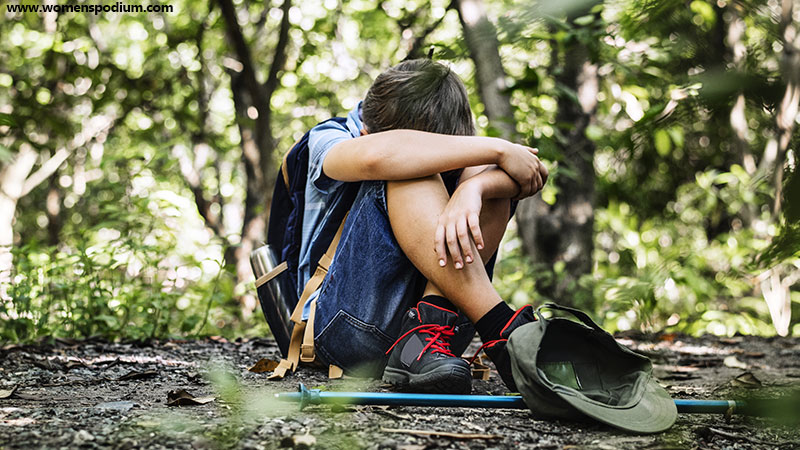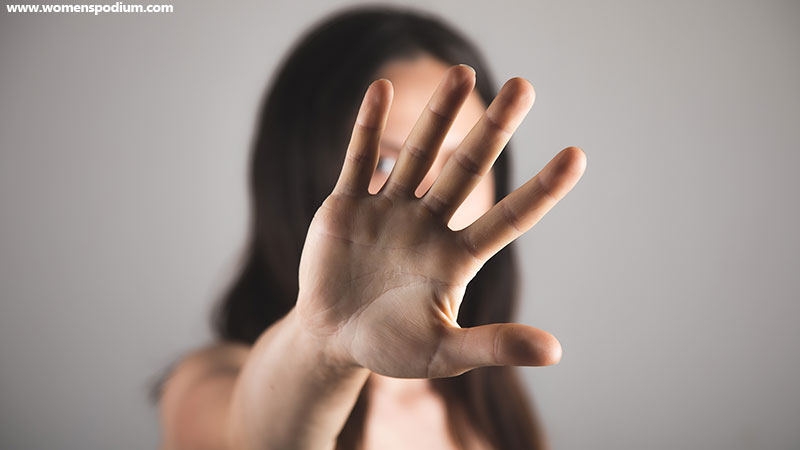
Emotional abuse may be hard to identify and even harder to overcome. Most people do not even realize that what they are experiencing is emotional abuse. In such cases, standing up for yourself becomes even more important. This article tells you everything you need to know about how to overcome emotional abuse or how to deal with emotional abuse.
Have you ever been caught in a situation where you feel you are being blamed for something you are not responsible for? Or people start giving you the silent treatment without justifying their reasons first? Have you ever been publicly shamed and then told that it was for your own good? If the answer to any of the above questions is yes, then you have been a victim of emotional abuse.
As humans, we recognize and classify physical abuse much faster than emotional abuse. One of the main reasons for this is because physical abuse earns a much more tangible response. However, emotional abuse is much more passive. It doesn’t use aggressive techniques and is more inert. Thus, it is more difficult to identify both the victim and the abuser.
What is Emotional Abuse?

Emotional abuse is complicated to deal with, mostly because the abuser may not even realize that they are abusive. It is one of the most challenging forms of abuse to recognize. It can be subtle or overt, and may not jump at you for immediate notice.
What we fail to realize is that just because we do not notice it, does not mean that it’s not causing harm. In fact, emotional abuse is much more harmful to a human’s psyche in the long run, rather than physical abuse. It hampers the self-esteem and confidence of the victim and bruises their emotional responses.
Emotional Abuse for Prolonged Periods, Damages More

When a person is a victim of emotional abuse for prolonged periods of time, they can even develop serious mental complications like depression, bipolar disorder, or anxiety disorders. In extreme cases, the victim may have suicidal feelings. The scars of emotional abuse are much more severe, even though they may be invisible. They take much longer to heal, and it may be that the victim may never completely revert to normal. Identifying your abuser is the first way to deal with emotional abuse.
Types of Emotional Abuse
1. Verbal Violence

Easier to notice, verbal violence includes everything from yelling and public humiliation to subtle taunts, or slight blame games. Any sort of behavior done particularly to cause pain to another entails as emotional abuse. Verbal emotional abuse can cause serious self-image complications and leave the victim feeling like they are not “worth it” or that they “deserve the abuse”.
2. Non-Verbal Violence

Emotional abuse does not necessarily require contact or conversation. Rejection, ignoring the conversation, stimulated isolation, bullying or digital spying are also ways by which a person can face emotional abuse. It can leave the victim feeling helpless and unwanted. They often become social outcasts and may even start to develop social anxiety.
We all tend to abuse someone close to us, and we don’t even fully realize it. What starts as a way to vent our anger towards them can suddenly start to spiral out of control. It can easily turn into emotional abuse and cause more harm than good in the long run.
Check if You are Prone to Get Emotionally Abused

Certain personalities are more prone to be emotionally abused than others. This is not to say that they are weaker or less adept than others. But, it only goes to say that people may possess specific characteristics that the abuser may take advantage of. The things you do or possess are:
- Prioritize the needs of others over yours.
- Always try to please others around you.
- Tend to sacrifice for those who may not do the same for you.
- Repress your own feelings to spare someone else’s feelings.
- Feel guilty for standing up for yourself.
- Think you deserve mistreatment.
- Find a way to blame yourself even though logic suggests otherwise.
- Think that nobody would want to spend time with you.
Don’t Loathe for Yourself

While being selfless is often showcased as a positive, empathetic skill to possess; oftentimes, it arises out of a loathing for yourself. At some level, you believe that the people around you are better and that you do not deserve the comforts or achievements you enjoy. You have been nursing a severe inferiority complex. This is most likely the reason for the development of this so-called “selfless” attitude toward society.
Know your Worth

Know that you are worthy of everything you have in your life. Wanting to do good for others is a beautiful emotion, and you should love yourself for it. But make sure you are kind to yourself too. Don’t let people walk all over you and take advantage of your selflessness. Your feelings and emotions are important too. Remember that standing up for yourself is not a crime.
Emotional Abuse and Women

Scientifically, women possess certain characteristics that make them more vulnerable to emotional abuse rather than their male counterparts. Remember, that emotional abuse in a relationship is also an example of domestic violence. Just because it does not leave any physical scars, doesn’t mean it doesn’t harm the victim. In fact, the repercussions of emotional abuse are often more severe than physical abuse.
However, many women do not realize that they are in an abusive relationship. They try to justify their partner’s behavior and tend to be “rational” instead. This behavior does not stem from an intrinsic value of survival. It is a result of ingrained patriarchy and a “male-first” societal order. Remember, standing up for yourself and your mental health is an absolute must. Emotional abuse cannot and should not be excused under any circumstances.
Know-How to Deal with Emotional Abuse

When you fail to confront mistreatment, you yourself become an accomplice to your own emotional abuse. If you have recognized that you are a victim of emotional abuse, there are ways to tackle it at the very grass root level. These steps can help you stand up to your abuser and take back control of your own emotions.
- Accept that the abuse is not your fault and nor is it your responsibility. Do not justify the person who is abusing you. The problem lies with them and not with you.
- Disengage and set personal boundaries. Not every aspect of your life can be open to comment or discussion.
- Decide for yourself that you will respond to the abuser assertively and will try and seek physical and emotional distance from such people.
- Do not react immediately to the abuser. Take control of your emotions first and then proceed with a logical response.
- Give yourself time to heal. These scars may be invisible, but they exist, and you must acknowledge that they are painful. They will take time to heal.
- Seek professional help or guidance. Talk to your friends, teachers, family members, or other people you may trust, or those who you know will support you.
- Practice self-care like going for a walk, eating comfort food, or listening to music. Activities like these reduce symptoms of stress and anxiety. Prioritizing your self-care is crucial for overcoming emotional abuse.
Final Words
Any kind of abuse is difficult to overcome. However, the first step is breaking the silence and standing up for yourself. Know that you deserve a certain level of respect and dignity, and there is nothing wrong with asserting that. Don’t let people walk all over you and take advantage of your selflessness. Your feelings and emotions are important too. Remember that standing up for yourself is not a crime.
Also Read: Abuse can be words, threats, shaming, or treating someone with violence, insolence, barbarity, injury, or force. One must not ignore these warning signs of an abusive relationship.





